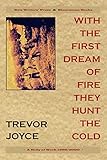For me, the book of the year was David Graeber’s Debt: The First 5,000 Years. I don’t know why it took me so long to get around to it—it came out almost a decade ago, and I was a fan of Graeber’s before that—but I finally did, and I’ve been thinking about it ever since. For an anthropologist to take on the history of economics (and history in general) might seem like hubris in this time of specialization, but if you leave specialties up to the specialists, they get inbred and excessively focused on details; an outsider with a lot of relevant facts and a willingness to upset applecarts can accomplish great things, and Graeber does.
He starts with the question of why we take the repayment of debts as an unquestioned moral obligation and traces the concept back to the ancient Near East, explaining that in traditional communities where everybody knows everybody else, debts are both ubiquitous and not subject to calculation, but once you get large states, most people don’t know each other and don’t have regular dealings with each other, and debts become formalized and equated to amounts of standard items like barley or, later, money; furthermore, people are equated to things and treated as such. He says that markets based on money are based on “systematic state violence”; localized transactions involving endlessly complex networks of expectations and responsibilities became increasingly irrelevant, and war and slavery became institutionalized.
I’m oversimplifying to an absurd extent, of course, but you get the general idea, and he provides many, many examples in the book—in fact, you may want to skim some of the details the first time you read it and concentrate on the big picture, which takes getting used to because we’re unused to looking at the world in that way. Once you do, though, you’ll find yourself constantly noticing ways his ideas illuminate the world. And along the way he tosses out all sorts of intriguing ideas: were knightly stories based on merchant life rather than on actual knights? Who knows, but it’s fun to think about!
Which brings me to another point. The book has met with a great deal of resistance from people who are invested in the traditional view of history and economics and who indignantly point out errors in Graeber’s account. Well, of course there are errors—there are errors in every book! (Trust me, I was an editor for many years and have corrected things that would make your hair stand on end, while knowing there must be mistakes I was missing for lack of the relevant knowledge.) To attack a book because you’ve found something the author got wrong is like attacking someone because they mispronounced a word; congratulations, you’ve showed off your superior information on one point, but you haven’t engaged with the arguments and you’ve made the observer suspect you’re doing it because you don’t have anything better to offer. Debt should be as revolutionary as Marx’s Capital (which contained plenty of errors); I hope people read it and apply its ideas to the world they see around them, and I mourn Graeber’s death deeply.
Another author I’ve finally gotten around to is Charles Portis, whose Norwood made me laugh more than anything I’ve read in a long time. Portis, like half my family, was from Arkansas, and I can attest to the brilliant use of the local form of English; if you like these two sentences, you will want to read the novel and everything else he wrote (he’s talking about a house located next to a flare in a gas field): “Big copper-green beetles the size of mice came from all over the Southland to see it and die in it. At night their little toasted corpses pankled down on the tin roof.” I’m very much looking forward to his most famous book, True Grit.
Soviet literature of the 1970s, the era of stagnation under Brezhnev, was by and large formulaic and forgettable, but there were exceptions; I’ve been reading two such, Yuri Trifonov and Vladimir Tendryakov. Trifonov is famous for his dissection of the moral compromises made by the rising Soviet middle class after WWII, and I’ve gobbled up the first three of his “Moscow novels,” all of which have been translated (and are available in one volume as The Long Goodbye: Three Novellas): The Exchange, Taking Stock, and The Long Goodbye. I think my favorite is the first, in which the protagonist’s mother has been diagnosed with terminal cancer and his ambitious wife suggests that they exchange their apartment for a larger one where they can all live together, but they’re all well worth reading. Tendryakov is even more focused on moral dilemmas, and I highly recommend his novellas The Trial (also translated as “Justice”), in which a bear hunter takes two less experienced men on a vividly described hunt which ends in tragedy and a Dostoevskyan exploration of conscience, and A Topsy-Turvy Spring, which features a 13-year-old boy who has to deal with love, math, and a very nasty bully.
Finally, I’ve been exploring two superb collections by the Irish poet Trevor Joyce, With the First Dream of Fire They Hunt the Cold: A Body of Work 1966/2000 and What’s in Store: Poems 2000-2007. Here’s a very brief poem, “Combing,” from the more recent collection; if you like it, seek out more:
thimbles of plush
throng between us
buzzing their wingwork
their excreta sweet
More from A Year in Reading 2020
Don’t miss: A Year in Reading 2019, 2018, 2017, 2016, 2015, 2014, 2013, 2012, 2011, 2010, 2009, 2008, 2007, 2006, 2005













